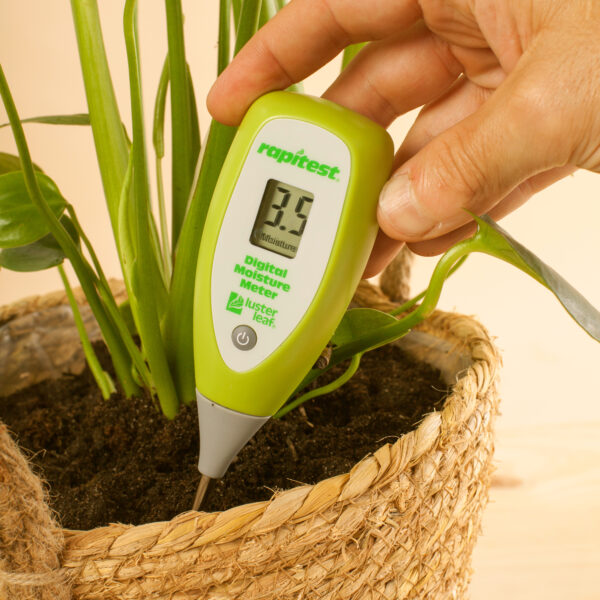Comprehending the Different Kinds Of Moisture Meters and Their Applications
Comprehending the Different Kinds Of Moisture Meters and Their Applications
Blog Article
The Ultimate Overview to Wetness Meters: A Comprehensive Summary and Just How They Can Conserve You Money
Dampness meters serve as important devices in discovering and monitoring moisture material in products, aiding in stopping costly damages and making sure the top quality of products. Understanding the nuances of various types of wetness meters, their applications, and the prospective cost-saving advantages they supply can be a game-changer for professionals and companies alike.
Kinds Of Wetness Meters
One common type is the pin-type wetness meter, which measures the electrical resistance in between two pins put right into a material. Pinless dampness meters, on the various other hand, use electro-magnetic sensing unit plates to scan a larger area without triggering damage to the material's surface.

In addition, there are also specialized wetness meters created for certain materials like grain, hay, or soil. These meters give exact wetness analyses tailored to the unique homes of the product being tested. Infrared dampness meters measure the thermal buildings of a product to identify its dampness material non-invasively, making them valuable for applications where pin or pinless meters may not be ideal. Comprehending the different kinds of moisture meters offered can aid industries pick the most suitable device for their particular dampness dimension needs.

Benefits of Utilizing Moisture Meters
Wetness meters supply important benefits in properly assessing and keeping an eye on wetness degrees in varied products and environments (Moisture Meter). One of the primary benefits of making use of dampness meters is the avoidance of possible damages triggered by excess moisture. By detecting and attending to high dampness degrees beforehand, moisture meters help to stop mold and mildew growth, rot, and structural damage in structures, conserving both time and cash on repairs. Additionally, moisture meters aid in guaranteeing the high quality of materials during construction or manufacturing processes. By properly measuring dampness web content, these devices aid preserve the stability of timber, drywall, concrete, and other materials, decreasing the risk of failings or defects.
Furthermore, making use of moisture meters can lead to raised energy performance. In agricultural settings, dampness meters play a crucial function in optimizing crop returns by making it possible for farmers to keep an eye on dirt moisture levels and make notified watering choices.
How to Select the Right Dampness Meter
When choosing a dampness meter, it's necessary to make certain that the meter is ideal for the details material you will certainly be testing. Various products have varying electrical residential or commercial properties that can affect dampness readings, so choosing a meter designed for your product is essential for accurate outcomes. By thoroughly reviewing these factors, you can select a moisture meter that fulfills your needs and provides precise moisture measurements for your tasks.
Proper Strategies for Moisture Meter Use

Expense Financial Savings Via Dampness Meter Applications
Just how can the calculated usage of dampness meters lead to considerable price savings throughout different industries? In the farming industry, wetness meters help in figuring out the optimal time for gathering crops, protecting against over-drying or excess dampness that can impact the final item's quality.
In a similar way, in construction, moisture meters help protect against costly problems by spotting wetness degrees in building products, such as timber or concrete, which can result in architectural issues if not attended to promptly. By determining trouble locations at an early stage, contractors can take rehabilitative steps to avoid comprehensive fixings or replacements, ultimately saving money and time.
Moreover, in the food handling industry, moisture meters are necessary for monitoring product high quality and making sure conformity with security regulations. By accurately gauging wetness content in food, suppliers can protect against wasting, keep quality, and decrease waste, leading to substantial price financial savings. On the whole, the strategic application of moisture meters is a useful investment that can result in considerable expense reductions and improved efficiency across various industries.
Conclusion
In conclusion, wetness meters are important devices for finding and measuring dampness levels in numerous materials. By making use of the best dampness meter and following correct techniques, customers can efficiently protect against expensive problems caused by excess wetness.
Dampness meters serve as indispensable devices in detecting and keeping track of moisture web content in materials, helping in protecting against costly damages and making certain the top quality of products. Infrared wetness meters gauge the thermal residential properties of a product to determine Home Page its wetness web content non-invasively, making them useful for applications where pin or pinless meters may not be ideal.Moisture meters provide vital benefits in accurately monitoring and evaluating wetness degrees in varied products and environments. In agricultural settings, wetness meters play a vital duty in maximizing crop returns by making it possible for farmers to check dirt moisture degrees and make informed irrigation decisions.In final more helpful hints thought, wetness meters are useful devices for gauging and identifying dampness degrees in numerous products.
Report this page